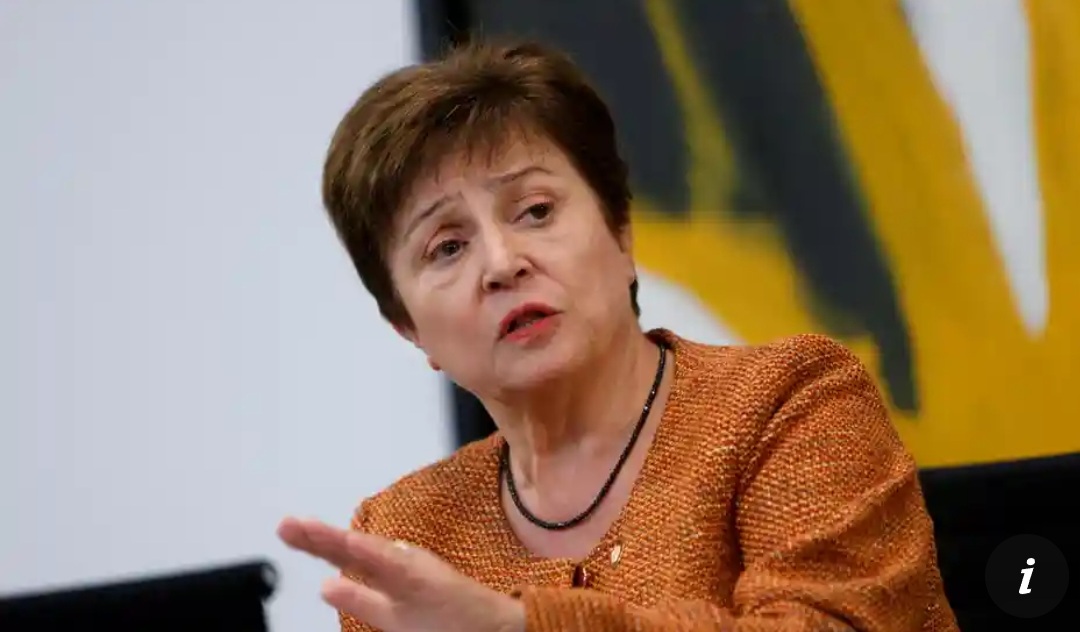The head of the International Monetary Fund has warned that the global economy faces risks to its financial stability because of the turbulence in the banking sector.
Kristalina Georgieva, the managing director of the Washington-based lender of last resort, said rising interest rates had put pressure on debts, leading to “stresses” in leading economies, including among lenders.
Georgieva said the world economy would expand by just 3% in this year as rising borrowing costs, combined with the war in Ukraine and scarring from the Covid-19 pandemic, would suffocate growth.
Adding to a growing chorus of warnings from economic leaders, the IMF chief said it was clear that risks to financial stability had increased after the recent collapse of Silicon Valley Bank and the Swiss-government brokered rescue of Credit Suisse by UBS.
Investors will be watching shares in Deutsche Bank when European markets reopen on Monday after they led the sell-off in banking stocks on Friday.
“At a time of higher debt levels, the rapid transition from a prolonged period of low interest rates to much higher rates – necessary to fight inflation – inevitably generates stresses and vulnerabilities, as evidenced by recent developments in the banking sector in some advanced economies,” Georgieva said at a conference in Beijing.
Her stark comments came as the European Central Bank (ECB) said the recent turmoil in banking would have a real-world impact on business and growth.
The EU central bank fears problems in the banking sector will result in lower growth and dampen inflation, the ECB vice-president, Luis de Guindos, said in an interview with Business Post.
“Our impression is that they will lead to an additional tightening of credit standards in the euro area. And perhaps this will feed through to the economy in terms of lower growth and lower inflation,” he said.
The outlook for the UK after Brexit is also presenting a challenging trade-off between low growth and high inflation, putting central bankers in a tricky position when it comes to increasing interest rates.
The head of Britain’s public spending watchdog underlined the negative impact of leaving the EU for the UK economy, saying it would cause economic scars even deeper than the pandemic.
“We think that it in the long run [Brexit] reduces our overall output by around 4% compared to had we remained in the EU,” Richard Hughes, the chair of the Office for Budget Responsibility, told the BBC. “It’s a shock to the UK economy of the order of magnitude to other shocks that we’ve seen from the pandemic, from the energy crisis.”
Guindos said that as economic stress increased in the UK, EU and the US, so-called shadow banks, a term for non-bank financial institutions, could further expose cracks in the financial system. “We do believe it could be a source of problems for the whole financial system, and we need to be careful,” he said.
These non-banks, which are outside the supervision powers of central banks such as the ECB, had taken “a lot of risks during the times of very low-interest rates” and all while “growing as share of the financial system in Europe”, Guindos continued.
Regulators in Switzerland continued to grapple with the fallout from the collapse of Credit Suisse. Public pressure has mounted on regulators after a vast package of support for the bank before its emergency merger with fellow Swiss bank UBS. The controversies over the bailout have added to echoes of the global financial crisis caused by the recent toppling of major financial institutions in the US and Switzerland.
The Swiss financial regulator said it was “still open” to taking disciplinary action against managers at Credit Suisse. However, it was a lower priority than “preserving financial stability” by overseeing the marriage between Switzerland’s second largest lender and UBS, said Finma’s head, Prof Marlene Amstad.
..as 2023 gathers pace, and you’re joining us from Sri Lanka, we have a small favour to ask. A new year means new opportunities, and we’re hoping this year gives rise to some much-needed stability and progress. Whatever happens, the Guardian will be there, providing clarity and fearless, independent reporting from around the world, 24/7.
Times are tough, and we know not everyone is in a position to pay for news. But as we’re reader-funded, we rely on the ongoing generosity of those who can afford it. This vital support means millions can continue to read reliable reporting on the events shaping our world. Will you invest in the Guardian this year?
Unlike many others, we have no billionaire owner, meaning we can fearlessly chase the truth and report it with integrity. 2023 will be no different; we will work with trademark determination and passion to bring you journalism that’s always free from commercial or political interference. No one edits our editor or diverts our attention from what’s most important.
With your support, we’ll continue to keep Guardian journalism open and free for everyone to read. When access to information is made equal, greater numbers of people can understand global events and their impact on people and communities. Together, we can demand better from the powerful and fight for democracy.
Whether you give a little or a lot, your funding is vital in powering our reporting for years to come





